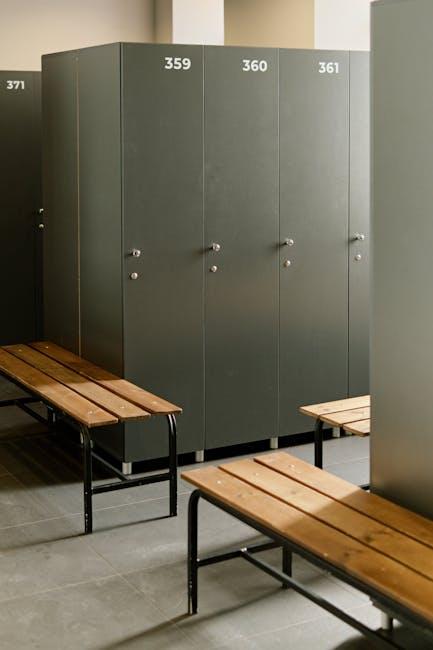In the landscape of modern education, private schooling stands as a beacon of privilege and exclusivity, often promising unparalleled academic excellence and opportunities. However, beneath this polished exterior lies a contentious debate about the broader societal implications of such institutions. Critics argue that private schooling fosters a sense of entitlement and detachment from the realities faced by the majority. This article delves into the nuanced dynamics of private education, examining how its inherent structures and environments may contribute to cultivating attitudes of entitlement and a disconnection from diverse societal experiences. By analyzing the cultural, social, and economic factors at play, we aim to unravel the complex relationship between private schooling and the development of children who may emerge insulated from the multifaceted world beyond their gated campuses.
Socioeconomic Disparities and the Cultivation of Entitlement
In the heart of many private educational institutions lies a paradox: while they are designed to offer superior academic opportunities, they often unwittingly cultivate a sense of entitlement among their students. This entitlement is not merely a byproduct of privilege but rather a reflection of the socioeconomic disparities that are deeply entrenched in society. Children from affluent backgrounds, who attend these schools, are frequently surrounded by peers from similar economic strata, which can create an echo chamber that insulates them from the diverse realities of the world. This insularity can manifest in several ways, such as:
- Limited Exposure to Diversity: Students may have fewer opportunities to interact with peers from varied socioeconomic backgrounds, leading to a narrow understanding of societal challenges.
- Expectation of Privilege: There is often an implicit understanding that their needs and desires will be prioritized, both in educational settings and beyond.
- Distorted Perception of Success: Success is frequently measured by material wealth and status, overshadowing values such as empathy and community service.
These factors contribute to a mindset where entitlement is perceived as a natural right rather than a privilege. The gap between private school students and those in public education can widen, fostering a disconnect that is challenging to bridge. Addressing these disparities requires a conscious effort to integrate values of inclusivity and empathy within the educational framework, ensuring that students not only excel academically but also develop a nuanced understanding of the world around them.

Curriculum and Culture: How Private Schools Foster Disconnect
The curriculum in private schools often emphasizes academic rigor and exclusivity, crafting an environment where students may become insulated from the broader societal context. This educational bubble can manifest in several ways:
- Selective History Lessons: Students might receive a version of history that glosses over critical social issues, failing to provide a comprehensive understanding of global and local challenges.
- Limited Exposure to Diversity: The student body in many private schools lacks the diversity found in public education systems, leading to a skewed perspective on multiculturalism and inclusivity.
- Focus on Elite Pathways: Curricula often prioritize pathways leading to prestigious universities and high-status careers, neglecting vocational training or alternative career paths that could offer a broader view of success.
Furthermore, the culture within these institutions often places a premium on competition and achievement, subtly promoting an elitist mindset. This can lead to a sense of entitlement, where students grow accustomed to privilege and may struggle to relate to individuals from different socio-economic backgrounds. By fostering environments where privilege is normalized, private schools risk creating graduates who are ill-prepared to navigate a world that values empathy and understanding over mere achievement.

Parental Influence and Its Role in Reinforcing Privilege
In many cases, the decision to enroll children in private schools is driven by parental aspirations to secure the best possible future for their offspring. However, this choice often comes with an unspoken reinforcement of societal hierarchies. Parents play a pivotal role in perpetuating privilege by selecting educational environments that prioritize exclusivity over inclusivity. This decision-making process is not just about seeking quality education but is deeply intertwined with maintaining social status and access to elite networks.
- Exclusive Networks: Parents often choose private schooling to ensure their children mingle with peers from similar socioeconomic backgrounds, reinforcing a sense of entitlement.
- Access to Resources: The availability of cutting-edge facilities and individualized attention in private schools highlights the disparity in educational resources, further entrenching privilege.
- Value Systems: The cultural values instilled within private school environments can sometimes prioritize competition and personal achievement over community and empathy.
By consciously or subconsciously aligning with these values, parents may inadvertently create an environment where children develop an insulated worldview. This environment can lead to a disconnect from broader societal challenges and reduce empathy towards those outside their immediate circles. The educational choices made by parents thus not only shape the academic trajectories of their children but also significantly impact their social consciousness and sense of responsibility.

Strategies for Bridging the Gap Between Private and Public Education
Addressing the disparities between private and public education requires innovative approaches that foster inclusivity and mutual understanding. Here are some strategies that could effectively bridge this gap:
- Collaborative Programs: Establish partnerships between private and public schools to create joint educational programs. These can include shared classes, extracurricular activities, and exchange programs that encourage students to interact and learn from one another.
- Resource Sharing: Facilitate the sharing of educational resources such as libraries, sports facilities, and technology between private and public institutions. This not only maximizes resource utilization but also promotes a sense of community.
- Teacher Training Initiatives: Implement joint professional development workshops and seminars for educators from both sectors. By exchanging teaching methodologies and experiences, teachers can enhance their skills and understanding of diverse educational environments.
- Community Engagement: Encourage schools to engage with local communities through service projects and events. By working together on community initiatives, students from different educational backgrounds can collaborate towards common goals, fostering empathy and social responsibility.
These strategies can cultivate a more integrated educational landscape, reducing elitism and promoting a more holistic approach to learning for all students.



